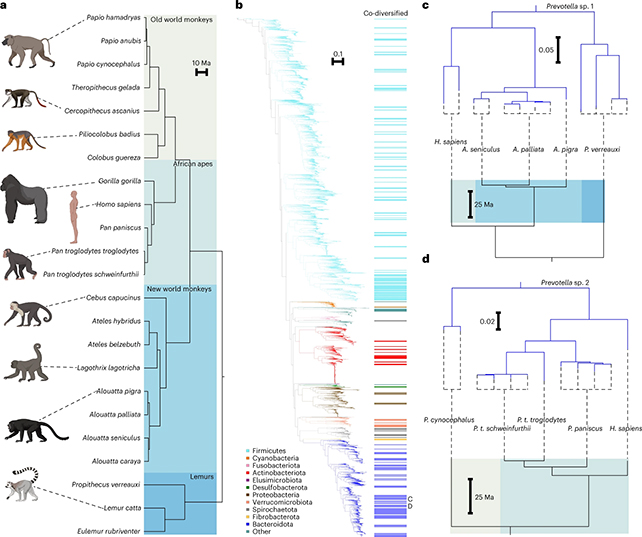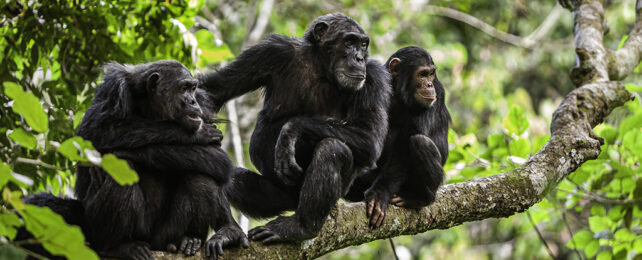There are all kinds of bacteria living in our gut, contributing to the healthy (or unhealthy) processes going on inside our bodies, but it turns out that we've lost a lot of the microbes that we once shared with our ancient primate ancestors.
Looking at genetic material in the guts of modern-day chimpanzees (Pan troglodytes troglodytes and P. t. schweinfurthii) and bonobos (P. paniscus), researchers traced back the lineages of their gut bacteria millions of years, before comparing them with the microbes that now live in human beings and African apes (our closest evolutionary relatives).
The analysis showed that many types of primate gut bacteria have evolved over that time, including in humans, but that a significant number of the bacteria that have evolved (or "co-diversified") with their hosts have been lost in Homo sapiens.
"This is the first microbiome-wide study showing that there are a great number of ancestral co-diversifying bacteria that have been co-living within primates and humans for millions of years," says evolutionary biologist Andrew Moeller from Cornell University in New York.
The team looked at 9,640 human and non-human primate metagenomes, essentially collections of genetic material from the bacteria. They reveal which microorganisms are present in a sample and in what sort of numbers.
These metagenomes were used to identify microbe clades (groups evolved from a common ancestor) that shared an evolutionary history with African apes. The data showed 44 percent of these clades were missing from humans overall, with 54 percent missing from industrialized human populations.
That compares with just 3 percent of the bacterial clades in African apes but not in humans if you only look at those that haven't evolved from distant primate ancestors. The co-diversified groups of bacteria have somehow been lost in human beings down the millennia.

This study didn't look closely at why this might be, but diet is likely to play a role. What we eat has a big impact on gut bacteria, and humans would've moved away from fruit and leaves to animal fat and protein fairly early in their history as a species.
"The working idea is that the losses we see spanning all human populations, regardless of lifestyle, were likely driven by dietary shifts that happened early in human evolution since we've diverged from chimpanzees and bonobos," says Moeller.
The researchers say future studies should look at a greater range of human gut bacteria, especially across different regions. One hypothesis is that the difference in industrialized populations may be down to modern diets and medicines.
Whether it's living a longer life or being more at risk of obesity, the mix of bacteria we carry around with us can tip our health one way or the other. Understanding how these microbes evolve over time is, therefore, hugely important.
Many of the same authors also worked on related study in mice, analyzing how native gut bacteria have a better chance of survival than non-native bacteria, offering some clues about how these microorganisms evolve along with their hosts.
"Our study shows that house mice microbiotas display competitive advantages over microbiotas from hosts diverged from house mice <10 million years ago, consistent with local adaptation of microbiota over relatively short evolutionary time scales," write the researchers in the second study.
The research has been published in Nature Microbiology and Science Advances.
